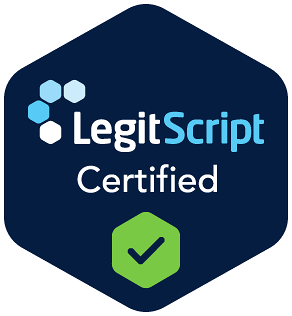Each new year brings a wave of pressure to set resolutions, promising transformation and drastic self-improvement. But for many people—especially those in recovery from addiction or managing mental health challenges—New Year’s resolutions can feel like a setup for failure.
Research shows that 80% of New Year’s resolutions fail by February. Resolutions often involve rigid, unrealistic expectations that lead to disappointment when life gets in the way. Instead of focusing on drastic changes, try shifting to sustainable, recovery-focused goals that allow for flexibility and progress.
At Bold Steps New Hampshire, we emphasize long-term recovery and holistic well-being. Our Addiction Treatment Program, Dual Diagnosis Treatment Program, Partial Hospitalization Program, Intensive Outpatient Programs, Outpatient Treatment Program, Medical Detox Program, and Virtual Treatment Program provide the necessary tools and support for individuals looking to build a healthier future.
Whether you’re navigating early sobriety or years into recovery, setting achievable goals rather than rigid resolutions can be a powerful way to maintain progress and promote self-growth.
Why Traditional Resolutions Often Fail
New Year’s resolutions are often based on perfectionism, which isn’t sustainable—especially for individuals working through recovery or managing mental health challenges.
1. Resolutions Are Too Rigid
Resolutions are often framed as all-or-nothing goals, such as:
❌ “I will never drink again.”
❌ “I will work out every single day.”
❌ “I will eat only healthy foods from now on.”
These goals may sound motivating at first, but the reality is that life is unpredictable. Unexpected stress, setbacks, or even minor missteps can cause frustration, leading people to give up entirely.
2. They Rely on Willpower Alone
Addiction recovery and mental health management require more than just willpower. Successful long-term change involves structured support, therapy, and self-awareness—not just forcing yourself to resist urges.
If someone tries to make a drastic change, such as quitting smoking cold turkey or completely cutting out sugar overnight, the likelihood of relapse is high because they haven’t developed the coping strategies needed for sustainable success.
3. They Create Pressure and Guilt
The expectation to “fix” everything on January 1st is unrealistic. The pressure can cause stress and self-criticism, making people feel worse if they don’t meet their own expectations.
Instead of setting rigid, unrealistic resolutions, shift your mindset to setting goals that are flexible, achievable, and support long-term growth.
Setting SMART Goals for Recovery and Wellness
A SMART goal is:
✔ Specific – Clearly defined with a clear action plan.
✔ Measurable – Progress can be tracked.
✔ Achievable – Realistic given current circumstances.
✔ Relevant – Supports long-term health and recovery.
✔ Time-Bound – Includes a deadline or schedule for progress.
Instead of saying: “I will be healthier this year.”
Try: “I will attend a support group twice a week and meal prep on Sundays to maintain my recovery and overall wellness.”
By breaking larger goals into small, manageable steps, you build momentum and boost self-confidence as you achieve them.
Goal-Setting Ideas for People in Recovery
Whether you’re in early recovery or have been sober for years, setting clear, flexible goals can help you continue growing. Here are some goal ideas that support both sobriety and overall well-being:
1. Strengthen Your Support System
✔ Attend at least two support group meetings per week (AA, NA, SMART Recovery, or an alternative group).
✔ Connect with a sober mentor or recovery sponsor.
✔ Schedule a monthly check-in with supportive friends or family.
2. Prioritize Mental Health
✔ Schedule regular therapy sessions through an Outpatient Treatment Program or Virtual Treatment Program.
✔ Start a daily gratitude journal and write three things you’re thankful for.
✔ Set boundaries to avoid toxic people or high-risk situations.
3. Develop Healthy Coping Mechanisms
✔ Practice mindfulness or meditation for at least five minutes a day.
✔ Try a new hobby or creative outlet (art, music, sports, writing).
✔ Exercise three times per week to boost mental and physical health.
4. Set Sobriety Milestones
✔ Celebrate 1 month, 3 months, 6 months, and 1 year of sobriety with small rewards.
✔ Read a recovery-related book each month to stay motivated.
✔ Work with a therapist or coach to create a relapse prevention plan.
5. Improve Physical Health
✔ Eat three balanced meals per day to fuel recovery.
✔ Establish a consistent sleep schedule (aim for 7-9 hours per night).
✔ Reduce caffeine or sugar intake gradually instead of eliminating it overnight.
How to Stay Motivated and Avoid Burnout
1. Take Small Steps
Trying to change everything at once is overwhelming. Focus on one goal at a time—whether that’s attending more therapy sessions, improving nutrition, or deepening relationships.
2. Be Kind to Yourself
Recovery is a lifelong journey, not a race. If you experience setbacks, practice self-compassion rather than guilt or shame.
3. Adjust Goals as Needed
If a goal feels too difficult or no longer serves you, modify it rather than abandon it. Flexibility is key to long-term success.
4. Use a Support System
Having accountability partners—whether it’s a therapist, sober mentor, or support group—helps keep you motivated and on track.
5. Celebrate Progress
Recognize small victories along the way. Recovery is about progress, not perfection.
What to Do If You Experience Setbacks
No matter how well you plan, setbacks are a normal part of growth. Here’s how to handle them:
✔ Don’t see setbacks as failures – They are opportunities to learn and grow.
✔ Reach out for help – Whether through therapy, support groups, or treatment programs, don’t go through struggles alone.
✔ Reevaluate your goals – If something isn’t working, adjust it. Flexibility is part of long-term success.
At Bold Steps New Hampshire, we offer comprehensive addiction and mental health treatment, including:
- Medical Detox Program – Safe withdrawal management.
- Partial Hospitalization Program (PHP) – Structured, intensive care.
- Intensive Outpatient Programs (IOP) – Flexible therapy while maintaining daily responsibilities.
- Outpatient Treatment Program – Ongoing support after inpatient treatment.
- Dual Diagnosis Treatment Program – Integrated care for mental health and substance use.
- Virtual Treatment Program – Remote access to therapy and recovery support.
Take Bold Steps Toward a Healthier You
Instead of setting rigid resolutions, shift to setting recovery-focused goals that support long-term progress without unrealistic expectations.
At Bold Steps New Hampshire, we’re here to help you take the next step in your recovery journey—whether through therapy, medical detox, or ongoing outpatient support. Call us today at (603) 915-4223 to explore our treatment options and start your journey toward a healthier, more fulfilling life.
Frequently Asked Questions (FAQ)
Why do most New Year’s resolutions fail?
Resolutions often fail because they are too rigid, unrealistic, or rely solely on willpower. Without a clear plan, they can become overwhelming and lead to discouragement when setbacks occur.
What’s the difference between resolutions and recovery-focused goals?
Resolutions tend to be all-or-nothing, whereas recovery-focused goals are flexible, achievable, and personalized. Goals focus on progress, not perfection, making them more sustainable.
How can I set goals that support my sobriety?
Use the SMART goal method to ensure your goals are Specific, Measurable, Achievable, Relevant, and Time-Bound. Examples include:
- Attending two support group meetings per week
- Practicing five minutes of mindfulness daily
- Scheduling monthly therapy check-ins
What are some recovery-friendly goal ideas?
- Strengthen your support system by engaging in therapy or peer groups.
- Prioritize mental health through journaling, meditation, or exercise.
- Celebrate sobriety milestones with personal rewards.
- Develop healthy coping skills like hobbies or creative activities.
What should I do if I experience a setback?
- Practice self-compassion—setbacks are part of the journey.
- Reevaluate and adjust your goals if needed.
- Reach out for support from therapists, sponsors, or support groups.
How can professional treatment help me reach my goals?
Programs like Medical Detox, Partial Hospitalization (PHP), Intensive Outpatient Program (IOP), and Dual Diagnosis Treatment provide structured support, therapy, and relapse prevention strategies to help you succeed.



